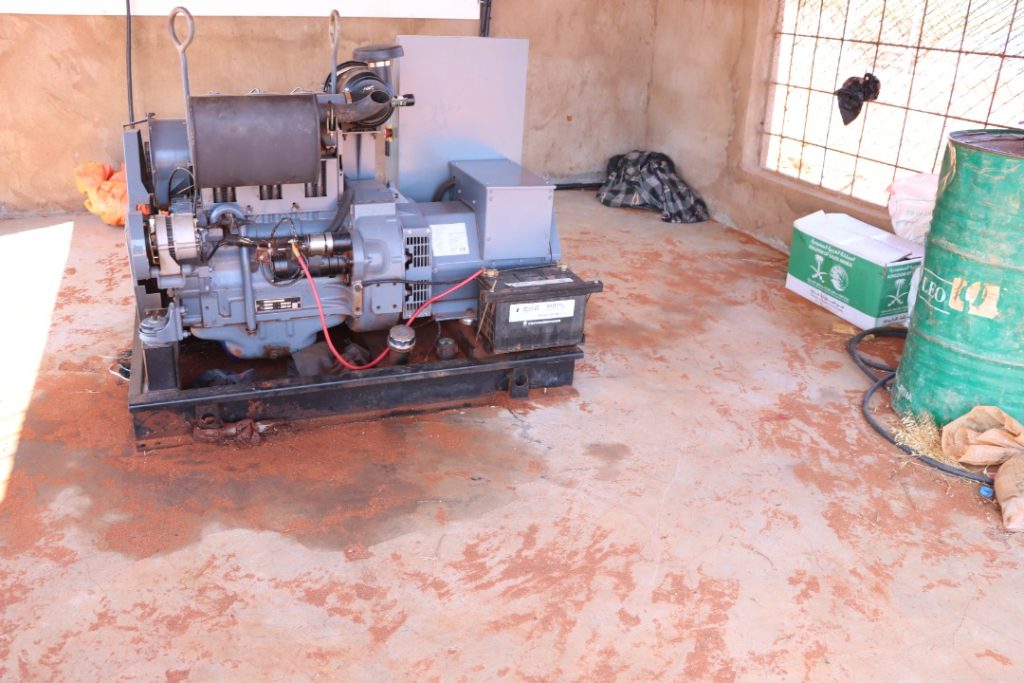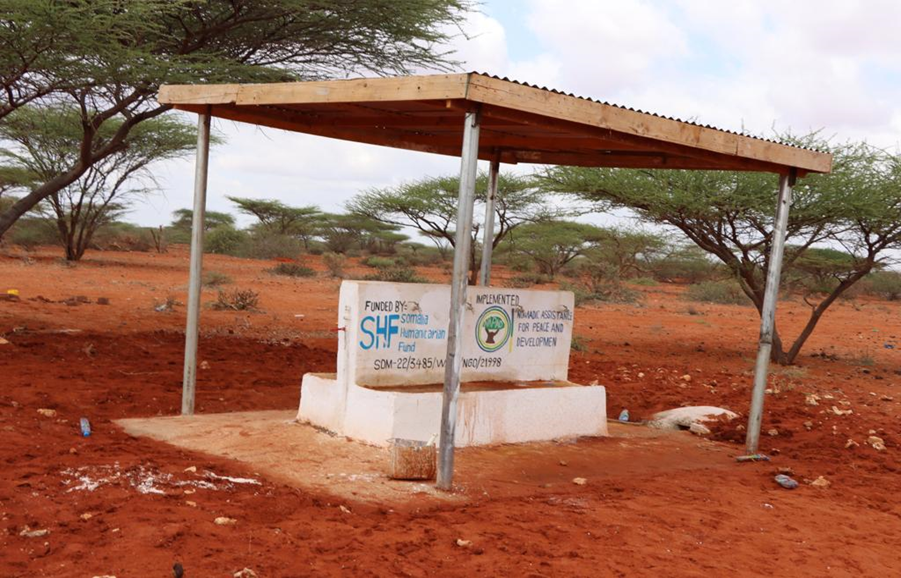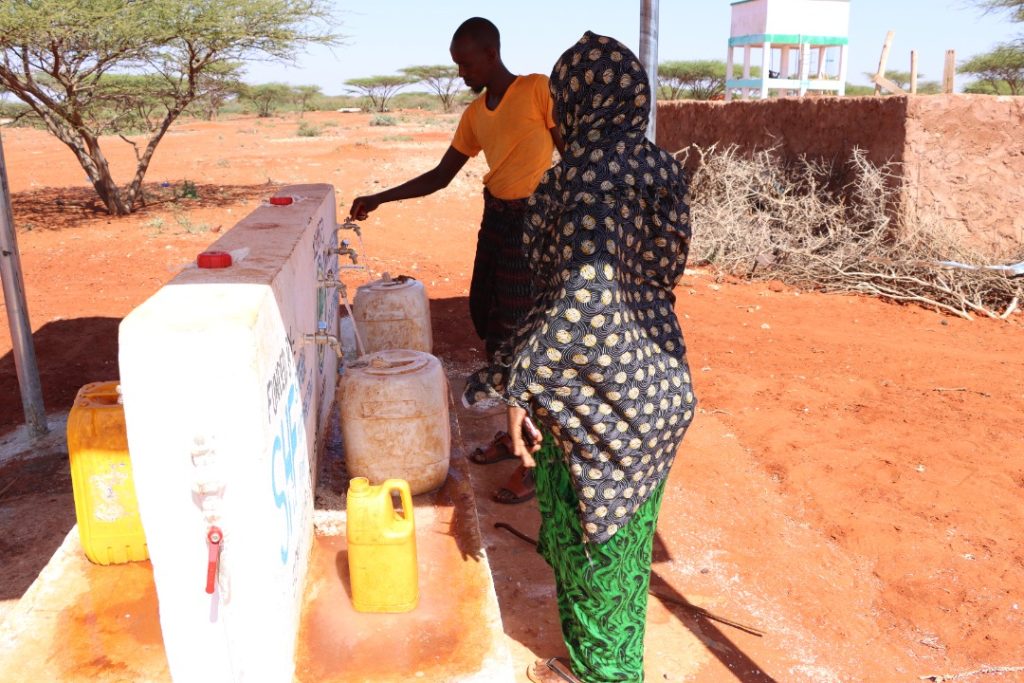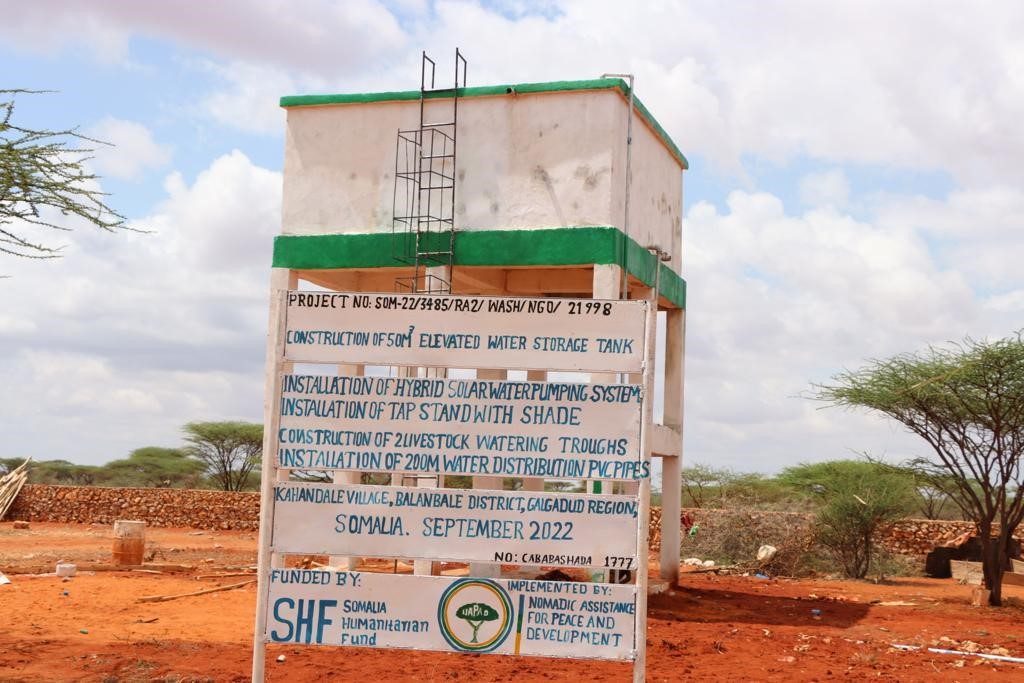By November 2022, more than 6.4 million people in Somalia are reported to be experiencing severe water shortages. Without access to clean water, they face an increased risk of health-related problems, like preventable water-borne diseases and respiratory infections (UNICEF). Women and girls also continue to be at heightened risk of sexual and gender-based violence as they walk for long distances far from their homes in search of water.
Kahandale Village,
Kahandale pastoral village is located 12 kilometers west of Balanbale District in the Galgadud Region of Somalia. The village’s primary source of water has been a single borehole. The community has been using a diesel-powered generator to pump water from the borehole. The generator consumed more than 35 liters of diesel every day costing up to USD 52.
“When the diesel-powered water pumping system broke down, I had to walk for about 10 KM daily together with my livestock in search of water.” Recalls Sahra Osman Abdi, a resident of Kahandale Village “I couldn’t always afford to buy enough clean water, which costs $4 per barrel, so we were forced to use contaminated water.” She continued

To respond to the water challenges experienced in Kahandale village, Nomadic Assistance for Peace and Development (NAPAD) in partnership with Somalia Humanitarian Fund (SHF) implemented a project that has established a water supply system that provides adequate, safe and affordable water for domestic and livestock use. The water supply system established consists of the construction of a 50M3 elevated concrete water storage tank, the installation of a tap stand for easy water collection by the community, the construction of two animal watering troughs and the installation of a hybrid solar-powered water pumping system.

Sahra Osman Abdi, a mother of 7 children, is one of the 600 households from Kahandale that have been accessing water through the newly established water supply infrastructure. The households now have sufficient, clean, and affordable water for drinking, cooking, cleaning and other domestic uses.

“My livestock also has enough drinking water at the animal watering troughs, and I do not face conflict at the water collection point since there is enough water for everyone.” Reported Sahra happily

NAPAD has trained a water management committee and solar power operators who are residents of the village to oversee operations, maintenance, and management of the project’s infrastructure to ensure the community continues to access life-saving water indefinitely.
Many households continue to be in desperate need of water as they face consecutive failed rainy seasons to date. NAPAD requires more funding to continue providing lifesaving affordable water to drought-affected communities through the establishment of more sustainable solar-powered water supply infrastructures to rural communities in the Horn of Africa.
